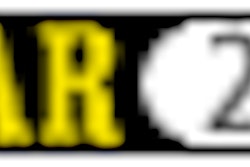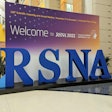If the medical imaging vendor you're used to dealing with has suddenly become stingier with the free golf junkets and dinners, there could be a reason: the imaging industry's main trade group has promulgated a new code of ethics designed to eliminate unethical business practices.
On January 1, the National Electrical Manufacturers Association (NEMA) of Rosslyn, VA, inaugurated a sweeping new code of ethics for imaging and radiation therapy manufacturers. Many imaging vendors say they've immediately implemented the code, prompting some complaints from customers accustomed to previously cherished perks.
Why would companies risk alienating potential customers who control the purse strings for big-ticket items like MRI scanners and PACS networks? Blame the increasingly sensitive environment regarding ethical business practices, generated in part by recent scandals in the pharmaceutical industry. The U.S. government is looking long and hard at businesses that provide Medicare services, so the imaging industry is taking preventive measures to avoid running afoul of antikickback laws.
The U.S. Department of Health and Human Services' Office of Inspector General recently finished an exhaustive investigation of the pharmaceutical industry that resulted in a lengthy set of ethical guidelines for those manufacturers. The radiology industry suspects that it could be the next target of government interest, and is taking preventive steps.
The code's intent is clearly stated: Members shall encourage ethical business practices and socially responsible industry conduct and shall not use any unlawful inducement in order to sell, lease, recommend, or arrange for the sale, lease, or prescription of, their products.
In other words, companies are not to use financial or social inducements to influence customers or potential customers. Entertainment, grants, and charitable donations are the primary areas where NEMA is encouraging members to develop company compliance programs to avoid even the appearance of bribes and kickbacks.
Putting the code together took eight or nine months, said Clark Silcox, general counsel for NEMA's medical products department. The association based the code on work already done previously by Advanced Medical Technology Association (AdvaMed), the largest trade association representing medical devices in general.
"Our goal was not to reinvent the wheel. AdvaMed did (a code) a year earlier," Silcox said. "It didn't make sense to have guidelines that differ or conflict. We tried not to change anything in theirs, but tried to be additive. With AdvaMed's permission, we took their text as a starting point, and you would find 80% to 85% substantial identity in the two codes."
A number of imaging companies took part in writing the NEMA code, which was put together over eight or nine months. NEMA has about 400 members, of which 40 to 50 are diagnostic imaging or radiation therapy companies.
Most NEMA members are integrating the code into their own personnel policies. "We have a Web site providing our employees with concrete guidance on the code of ethics, and enabling them to directly contact lawyers and compliance experts with questions about the code of ethics," said Jason Hanson, general counsel for GE Healthcare of Chalfont St. Giles, U.K.
"The past few years, integrity issues have arisen in other industries, and the government has had to step in and impose measures to prevent further issues," said John Labella, spokesperson for Eastman Kodak Health Group of Rochester, NY. "NEMA has developed a self-governing code of ethics so that our industry can take responsibility for its own behaviors. The goal is to stem issues in the medical imaging industry before they occur."
Although business entertainment isn't illegal in most industries, the fact that so much of healthcare expenditures in the U.S. are paid for by Medicare and Medicaid gives the U.S. government the legal authority to regulate business practices in the industry.
"A driving force is government scrutiny of transactions that have Medicare reimbursement supporting them," Silcox said. "Practices which are not specifically illegal could, if cumulated with a number of other practices, be seen in a different context by a prosecutor, by a grand jury member, by a jury in a trial, or by the business community at large."
The code acknowledges that customers often travel to manufacturing sites for demonstrations of products too large to easily haul around. The issue has been that vendors sometimes wined and dined visitors in manners that could be construed as improper inducements.
NEMA members may show healthcare provider customers hospitality in the form of meals, lodging, and entertainment in connection with onsite programs, but the key is for these benefits to be "reasonable and modest." And such hospitality may not be provided for healthcare professionals' spouses or others with no bona fide professional interest in the information the manufacturer is providing.
Hitting the links
One practice that sticks out in any reading of the NEMA code is that of playing golf with customers, which is mentioned half a dozen times. According to Silcox, this was an area that came up repeatedly when NEMA members began looking at ways to add value and distinguish the NEMA code from that of AdvaMed.
"Is one round of golf with a customer illegal? I think the answer is clearly 'no,'" said Robert Britain, vice president of the medical products department at NEMA. "But maybe a round of golf in the context of some other things could raise some suspicions. Our members don't want to be put in the position of having suspicions raised about them."
According to the code, NEMA members may not pay, directly or indirectly, for hospitality in the form of tickets for a sporting event, theater tickets, or golf. Members may not make educational grants directly to healthcare providers so that they may attend educational conferences; consultants are to be paid based on their qualifications, and not on the basis of past or projected business arrangements.
Other than the gift of medical textbooks or anatomical models used for educational purposes, any gift from a NEMA member should have a fair market value of less than $100.
Manufacturers are asked to adopt compliance programs, and their personnel who make decisions on research funding or charitable giving should be independent of sales and marketing staffs.
Jim Ruger, general counsel for Siemens Medical Solutions of Malvern, PA, said his company has developed a wallet-sized "quick tips" card for its employees that gives them a brief set of dos and don'ts for reference while they are in the field. This is in addition to more definitive instructions that the employees get as part of compliance training.
NEMA has promoted its new code to industry organizations such as the Radiological Society of North America and the American Society for Therapeutic Radiology and Oncology. NEMA has no enforcement capability, although it could terminate a company's membership in the association. Britain suspects it will be harder to convince customers that manufacturers are operating differently now.
"Members are getting feedback that customers are calling them cheap," Britain said.
To be sure, the NEMA Code of Ethics will keep manufacturers from overspending on customer entertainment, but the bigger benefit will be greater compliance with federal antikickback laws and greater integrity throughout the medical imaging and radiation therapy industries.
"Many of our customers are subject to the same laws that underlie the code, so industry's commitment to compliance with the code shows that it is in solidarity with healthcare providers' own compliance efforts, and is taking steps to avoid practices that place both the providers and manufacturers at risk," according to Randy Rountree, senior vice president of sales for North America at Philips Medical Systems of Andover, MA. "Everybody wins. Should unethical or illegal practices become widespread in our industry, it would reflect badly on the industry as a whole and invite greater governmental intervention."
By Robert Bruce
AuntMinnie.com contributing writer
April 8, 2005
Related Reading
NEMA offers ethics code for sale, February 28, 2005
NEMA responds to WSJ article, January 13, 2005
NEMA issues ethics code for imaging equipment makers, December 2, 2004
Report finds FDA unprepared to regulate new technologies, June 19, 2001
HIMA changes name to AdvaMed, June 22, 2000
Copyright © 2005 AuntMinnie.com



















